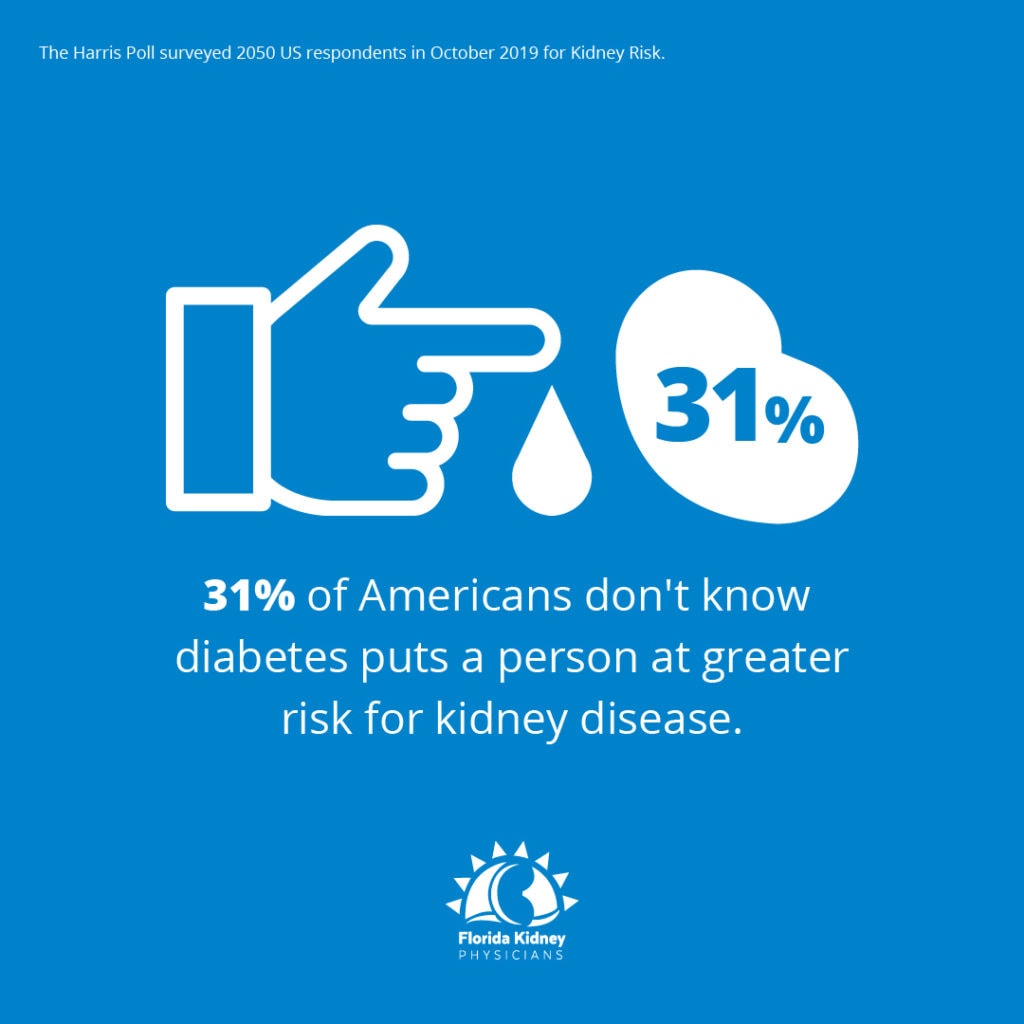When diabetes causes kidney disease, it’s called diabetic kidney disease.
Diabetes is the leading cause of kidney disease. About 1 out of 3 adults with diabetes have kidney disease.
How does diabetes cause kidney disease?
High blood glucose, also called blood sugar, can damage the blood vessels in your kidneys. When the blood vessels are damaged, they don’t work as well.
Many people with diabetes also develop high blood pressure, which can also damage their kidneys. Learn more about high blood pressure and kidney disease.
How can I tell if I have diabetic kidney disease?
Most people with diabetic kidney disease do not have symptoms. The only way to know if you have diabetic kidney disease is to get your kidneys checked.
Health care professionals use blood and urine tests to check for diabetic kidney disease. Your health care professional will review your urine for albumin and do a blood test to see how well your kidneys filter your blood.
You should get tested every year for kidney disease if you
- have type 2 diabetes
- have had type 1 diabetes for more than 5 years
What increases my chances of developing diabetic kidney disease?
Having diabetes for a longer time increases the chances that you will have kidney damage. If you have diabetes, you are more likely to develop kidney disease if your
- blood glucose is too high
- blood pressure is too high
African Americans, American Indians, and Hispanics/Latinos develop diabetes, kidney disease, and kidney failure at a higher rate than Caucasians.
You are also more likely to develop kidney disease if you have diabetes and
- smoke
- don’t follow your diabetes eating plan
- eat foods high in salt
- are not active
- are overweight
- have heart disease
- have a family history of kidney failure
How can I keep my kidneys healthy if I have diabetes?
The best way to slow or prevent diabetes-related kidney disease is to reach your blood glucose and blood pressure goals. Healthy lifestyle habits and taking your medicines as prescribed can help you achieve these goals and improve your health overall.
-Reach your blood glucose goals
-Control your blood pressure
-Take medicines as prescribed
-Develop or maintain healthy lifestyle habits
How can I cope with the stress of managing my diabetes?
Managing diabetes isn’t always easy. Feeling stressed, sad, or angry is expected when you are living with diabetes. You may know what to do to stay healthy but may have trouble sticking with your plan over time. Long-term stress can raise your blood glucose and blood pressure, but you can learn ways to lower your stress.
Try deep breathing, gardening, taking a walk, doing yoga, meditating, doing a hobby, or listening to your favorite music. Learn more about healthy ways to cope with stress.
Does diabetic kidney disease get worse over time?
Kidney damage from diabetes can get worse over time. However, you can take steps to keep your kidneys healthy and help slow kidney damage to prevent or delay kidney failure.
Kidney failure means that your kidneys have lost most of their ability to function—less than 15 percent of normal kidney function. However, most people with diabetes and kidney disease don’t end up with kidney failure.
We are here to help you! Call us or make an appointment online if you need a kidney doctor.

